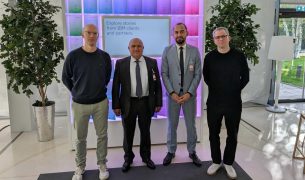
During a dedicated session at IBM France, HamidReza Vanaei, professor and researcher at ESILV, presented the book History of Artificial Intelligence: From the Mathematics of Ancient Civilisations to Thinking Machines, published by CRC Press – Routledge Taylor & Francis Group. The meeting brought together members of the technical community to exchange on the historical, scientific, […]

A new publication in IEEE Access (Q1), led by Ahmed Azough, Head of the Computer Science & Data Science MSc at ESILV, offers a structured review of artificial intelligence methods for detecting parking slots from in-vehicle cameras. This work, to which Chaimae Aajal contributed, analyses how camera-based approaches have evolved into a scalable alternative to […]

Preserve.Archi is a non-profit initiative introduced by Marc Teyssier, Deputy Director of the Institute for Future Technologies at De Vinci Higher Education. It aims to build a comprehensive digital archive of small-scale architectural heritage, starting with a pilot project in the city of Nantes. A European initiative to make overlooked architectural heritage accessible through 3D […]
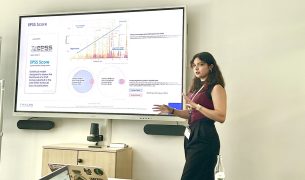
Myriam, class of 2025, presented her first academic paper at the European Conference on Cyber Warfare and Security (ECCWS). Her research questions the current vulnerability assessment models in cybersecurity. This international experience marks an essential step in her professional and academic journey. Read the paper From ESILV to Cybersecurity Research: A First Step Forward As […]

Not all AI projects make it past the hype. Some promise game-changing results but never quite deliver, while others get stuck in endless testing phases. The difference? Strong technical leadership that turns AI from a cool experiment into a real business asset. For AI to truly make an impact, it needs more than just powerful […]
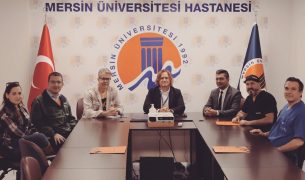
In November 2024, Jinan Charafeddine, Professor Researcher at ESILV, participated as a Keynote Speaker at the 8th International Researchers, Statisticians, and Young Statisticians Congress (IRSYSC 2024). This international event, organized by Adana Alparslan Türkeş Science and Technology University (ATU) in Adana, Turkey, brought together researchers, academics, and students to discuss the latest statistics and applied […]
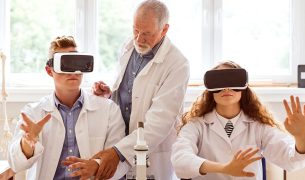
Ahmed Azough, a professor-researcher at ESILV, co-directed a significant contribution to medical education research. Entitled “Virtual Reality in Medical Education: Effectiveness of the Immersive Virtual Anatomy Laboratory (IVAL) Compared to Traditional Learning Approaches,” this study was published in the Elsevier journal “Displays”. It aims to examine the impact of immersive virtual reality tools in enhancing […]
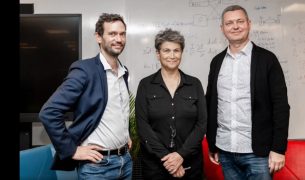
In mid-October, the De Vinci Innovation Center (DVIC) hosted a discussion that delved into the mysteries of Artificial Intelligence. Titled “Understanding Consciousness and AI,” the event brought together personalities from neuroscience and data science. Organized by Creative Valley (Creative Cluster), the University of Chicago, and the Institute of Future Technologies (IFT), the event encouraged reflection […]
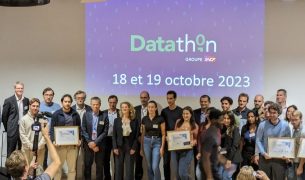
The inaugural edition of the SNCF Datathon, often called the data hackathon, unfolded at the SNCF Réseau premises in the Île-de-France region. The grand prize in this competition, which featured six use cases and 12 teams, was claimed by students from ESILV. Students from the Data and Artificial Intelligence major took part in this educational […]

ESILV engineering students have succeeded in creating a virtual museum prototype that can be tested using Oculus Quest 2 virtual reality headsets. In partnership with the Centre Euro-méditerranéen pour la numérisation et la médiation du Patrimoine, the students have created the Virtual Museum: a virtual museum in the metaverse to preserve and mediate French heritage. […]

Big data is expanding at a rapid pace, and with it comes an increased demand for skilled professionals to manage projects. Big data project managers play a critical role in ensuring the success of these projects, and they require a unique set of skills to manage the complex nature of the work.

Machine learning, a branch of artificial intelligence (AI), has been viewed as one of the most important technological developments and is now a commonplace reality. After being an imaginary concept from sci-fi for way too long, today, machine learning has been improving industries, for social good, and daily life in terms of productivity and well-being, […]
